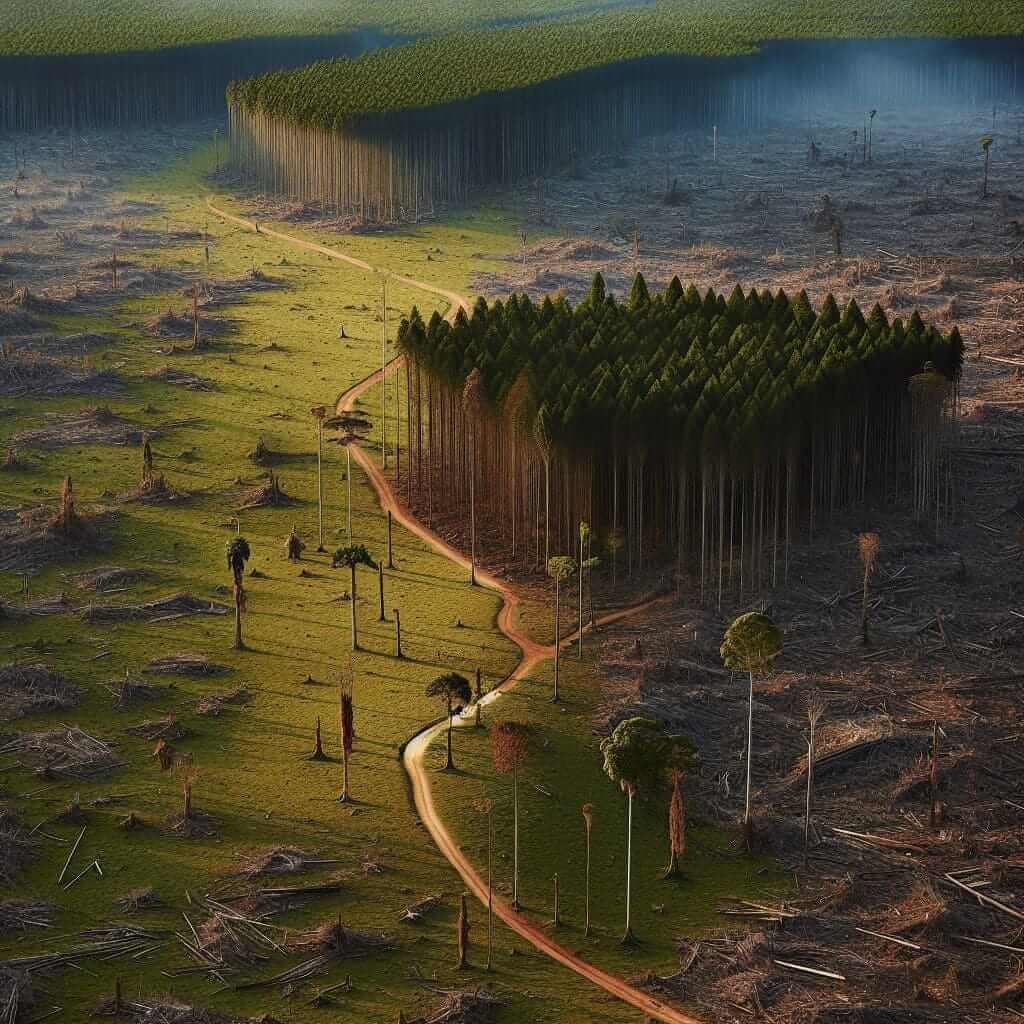The decline of biodiversity is a pressing global issue, frequently appearing in IELTS Writing Task 2. This topic requires you to demonstrate an understanding of the interconnectedness of species and their environments. Let’s explore some potential essay questions:
1. Some people believe that the extinction of plants and animals is a natural process and should not be interfered with. To what extent do you agree or disagree?
2. What are the main causes of biodiversity loss, and what are the most significant consequences for ecosystems?
3. Governments and individuals must take action to address the problem of declining biodiversity. Discuss the measures that could be taken.
Sample Essay: Question 2
For this example, let’s focus on question 2:
What are the main causes of biodiversity loss, and what are the most significant consequences for ecosystems?
Analyzing the Question
This question requires a two-part answer:
- Causes: Identify and explain the factors driving biodiversity loss.
- Consequences: Discuss the negative impacts of this loss on ecosystems.
Model Essay
The accelerating rate of biodiversity loss poses a grave threat to the planet’s delicate ecosystems. Driven by a complex interplay of human activities and natural phenomena, this decline has devastating consequences for the health and stability of our natural world.
One of the primary drivers of biodiversity loss is habitat destruction. As human populations grow and demand for resources increases, vast swathes of forests, wetlands, and grasslands are being converted into agricultural land, urban areas, and infrastructure. This fragmentation and degradation of habitats directly leads to the displacement and extinction of countless species. Furthermore, the overexploitation of natural resources, such as overfishing and illegal wildlife trade, further exacerbates the problem by decimating populations faster than they can recover.

Another significant contributor is climate change, which is altering ecosystems at an unprecedented rate. Rising temperatures, shifting rainfall patterns, and increasing frequency of extreme weather events are disrupting the delicate balance of nature, forcing species to adapt, migrate, or face extinction. As keystone species disappear, the intricate web of life is disrupted, leading to cascading effects throughout the ecosystem. For example, the loss of pollinators like bees could lead to widespread crop failures, impacting food security for humans and other species.
The consequences of biodiversity loss extend far beyond the extinction of individual species. Ecosystems become more vulnerable to disease outbreaks, invasive species, and other disturbances. They are also less efficient at regulating essential services like clean air and water, carbon sequestration, and soil fertility. This degradation ultimately undermines human well-being, impacting food security, access to clean water, and overall quality of life.
In conclusion, addressing the multifaceted issue of biodiversity loss requires a concerted global effort. Tackling habitat destruction, overexploitation, climate change, and pollution is paramount to safeguarding the future of our planet and the well-being of all species, including our own. (Word count: 325)
Writing Tips
- Structure: Use a clear structure to present your ideas logically. The model essay uses a cause-effect structure.
- Vocabulary: Utilize a range of vocabulary related to the environment and biodiversity.
- Examples: Support your claims with relevant and specific examples.
- Grammar: Ensure grammatical accuracy and variety in sentence structures.
Vocabulary
- Degradation (noun) /ˌdeɡrəˈdeɪʃən/: The process in which the quality of something is damaged or becomes worse.
- Fragmentation (noun) /ˌfræɡmənˈteɪʃən/: The process of breaking into small parts.
- Exacerbate (verb) /ɪɡˈzæsərbeɪt/: To make a problem, bad situation, or negative feeling worse.
- Decimate (verb) /ˈdesɪmeɪt/: To kill a large number of something.
- Keystone species (noun) /ˈkiːstoʊn ˈspiːʃiːz/: A species that has a disproportionately large effect on its environment relative to its abundance.
Conclusion
This guide has explored the intricacies of writing about biodiversity loss for IELTS Writing Task 2. Remember to analyze the question carefully, structure your essay coherently, and utilize a strong vocabulary. By following these tips and practicing regularly, you can confidently tackle any essay question on this pressing global issue. Other related themes you might encounter include: climate change, deforestation, and sustainable development.